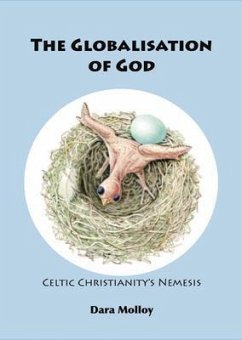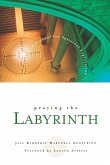In today's world, globalisation is a word that describes the ubiquitous spread of multinational corporations and their influence into every region and every country. Those who oppose globalisation today point to the damage it is doing to the natural environment, to cultural heritage and to biological diversity. They argue that it is neither transparent nor accountable, neither ecologically nor economically sustainable and that it puts profit before the democratic will of the people.
This book traces the roots of this globalisation process to a belief in one god who rules the universe. The predominant god of Moses is a god shared by three major world religions and many other lesser ones. Together they constitute more than half the world's population. The god of Moses dismisses all other gods and goddesses and establishes one way, and one way only, of seeing the world.
Before Moses, polytheism was the norm. Each culture had its own set of gods and goddesses who lived locally. This ensured diversity. Beliefs were as diverse as languages.
Historically, in the language of globalisation, the first 'product' to be 'marketed' at a global level was a belief in the one god of Moses. This belief was wrapped in the Christian message and 'advertised' by Christian missionaries who were willing to travel anywhere and give everything for the cause.
From the 4th century CE the Christian church of Rome began building itself into a global corporation. When one looks at how global corporations operate today, one can see how their structures and operations mimic in many ways those developed over centuries by the Roman church.
In order for the Roman church to remain in control of its global operations, it had to insist on uniformity in its 'products' and 'services'. This led to the removal of local and diverse expressions of Christianity.
One of the many casualties of this globalisation process was Celtic Christianity. The second half of this book traces the history of the conflict between the Celtic monastic movement and Rome. The story demonstrates that what the Roman church did then and what multinational corporations do now is much the same.
This book was first published in 2009. Its message remains relevant and even more pressing now.
This book traces the roots of this globalisation process to a belief in one god who rules the universe. The predominant god of Moses is a god shared by three major world religions and many other lesser ones. Together they constitute more than half the world's population. The god of Moses dismisses all other gods and goddesses and establishes one way, and one way only, of seeing the world.
Before Moses, polytheism was the norm. Each culture had its own set of gods and goddesses who lived locally. This ensured diversity. Beliefs were as diverse as languages.
Historically, in the language of globalisation, the first 'product' to be 'marketed' at a global level was a belief in the one god of Moses. This belief was wrapped in the Christian message and 'advertised' by Christian missionaries who were willing to travel anywhere and give everything for the cause.
From the 4th century CE the Christian church of Rome began building itself into a global corporation. When one looks at how global corporations operate today, one can see how their structures and operations mimic in many ways those developed over centuries by the Roman church.
In order for the Roman church to remain in control of its global operations, it had to insist on uniformity in its 'products' and 'services'. This led to the removal of local and diverse expressions of Christianity.
One of the many casualties of this globalisation process was Celtic Christianity. The second half of this book traces the history of the conflict between the Celtic monastic movement and Rome. The story demonstrates that what the Roman church did then and what multinational corporations do now is much the same.
This book was first published in 2009. Its message remains relevant and even more pressing now.
Dieser Download kann aus rechtlichen Gründen nur mit Rechnungsadresse in A, D ausgeliefert werden.









